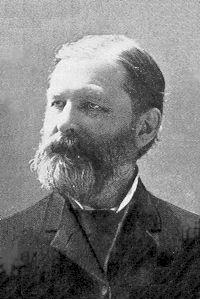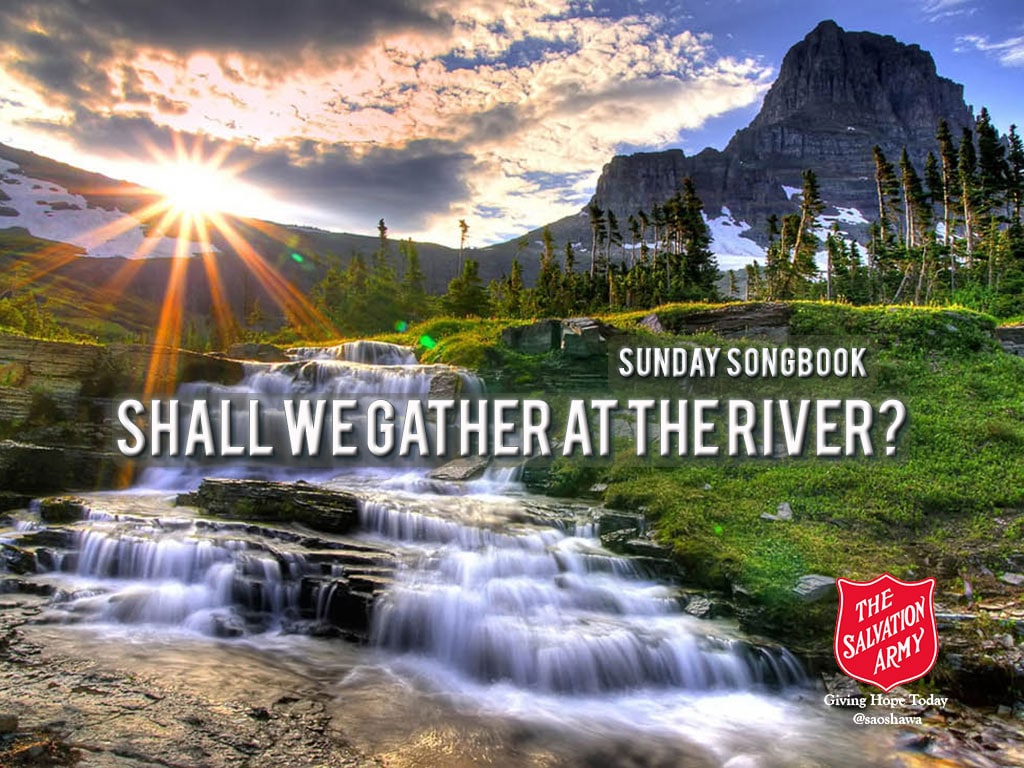Shall we gather at the river,
Where bright angel feet have trod,
With its crystal tide forever
Flowing by the throne of God?
CHORUS:
Yes, we’ll gather at the river,
The beautiful, the beautiful river –
Gather with the saints at the river
That flows by the throne of God.
On the margin of the river,
Dashing up its silver spray,
We will walk and worship ever
All the happy, golden day.
Ere we reach the shining river,
Lay we every burden down;
Grace our spirits will deliver
And provide a robe and crown.
At the shining of the river,
Mirror of the Saviour’s face,
Saints whom death will never sever
Raise their song of saving grace.
 One might not expect that this song about going to Heaven was written because of summer heat! However, Robert Lowry wrote it on an extremely hot day in Brooklyn, New York, in 1864. He was lying, physically exhausted, on a couch, feeling unable to move. He let his imagination soar into visions of the future, in which he saw God’s throne, the gathering of the saints, and the cool, crystal river described in Revelation 22. The music took shape along with the lyrics and this became Lowry’s most well-known hymn. Although he was a pastor, he realised he could reach more people with his hymns than with his sermons.
One might not expect that this song about going to Heaven was written because of summer heat! However, Robert Lowry wrote it on an extremely hot day in Brooklyn, New York, in 1864. He was lying, physically exhausted, on a couch, feeling unable to move. He let his imagination soar into visions of the future, in which he saw God’s throne, the gathering of the saints, and the cool, crystal river described in Revelation 22. The music took shape along with the lyrics and this became Lowry’s most well-known hymn. Although he was a pastor, he realised he could reach more people with his hymns than with his sermons.
WORDS AND MUSIC: ROBERT LOWRY
S.A. SONG BOOK, 1987 EDITION, #891; 2015 EDITION, #546
REFERENCE: MORGAN, ROBERT J., THEN SINGS MY SOUL
Buddy Greene

Salvation Army Band






